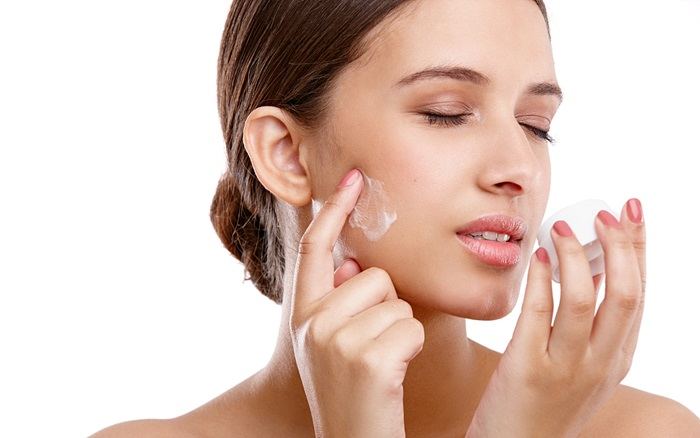Hormone replacement therapy (HRT) is a treatment that involves the use of hormones to supplement the body’s natural hormone levels. It is most commonly associated with menopause in women, but can also be relevant in other hormonal imbalances. The impact of HRT on skin problems is an area of growing interest, as hormones play a crucial role in maintaining skin health.
The Role of Hormones in Skin Health
Estrogen and Skin
Estrogen is a key hormone that has a profound impact on the skin. It helps to maintain the skin’s thickness, elasticity, and hydration. In pre – menopausal women, estrogen promotes collagen production. Collagen is a protein that provides structural support to the skin, keeping it firm and reducing the appearance of wrinkles. Estrogen also enhances the skin’s ability to retain moisture, which is essential for a healthy and youthful complexion.
Additionally, estrogen can affect the skin’s lipid content. The lipids in the skin act as a barrier, preventing water loss and protecting against external irritants and infections. When estrogen levels are adequate, this lipid barrier is more effective, contributing to a smoother and more resilient skin surface.
Testosterone and Skin
Testosterone also plays a role in skin health. In both men and women, testosterone can influence sebum production. Sebum is an oily substance that lubricates the skin and hair. In appropriate amounts, it helps to keep the skin moisturized and protects it from drying out. However, an overproduction of sebum, often associated with hormonal imbalances, can lead to skin problems such as acne.
How HRT Can Potentially Benefit Skin Problems
During Menopause
As women enter menopause, estrogen levels decline, which can lead to a variety of skin changes. The skin may become thinner, drier, and less elastic. Wrinkles may become more prominent, and the skin may also be more prone to bruising. HRT that includes estrogen can help to counteract some of these changes.
By supplementing estrogen, HRT can potentially increase collagen production and improve skin hydration. Some women on HRT report a reduction in the appearance of fine lines and a more supple skin texture. The improvement in the skin’s lipid barrier function can also lead to a reduction in dryness and itchiness, common menopausal skin complaints.
For Hormonal Acne
In cases of hormonal acne, which is often related to fluctuations in androgen (such as testosterone) levels, HRT can be considered in some contexts. For example, in women with polycystic ovary syndrome (PCOS), where there is an overproduction of androgens, a combination of anti – androgen medications and hormonal therapies may be used.
HRT can help to regulate the hormonal imbalance that is driving the excessive sebum production and subsequent acne. By normalizing hormone levels, it may reduce the frequency and severity of breakouts. However, the use of HRT for acne treatment needs to be carefully monitored, as it can have other effects on the body and may not be suitable for everyone.
Types of HRT and Their Skin – Related Effects
Estrogen – Only HRT
Estrogen – only HRT can be beneficial for skin health, especially for women who have had a hysterectomy. This form of HRT directly addresses the decline in estrogen levels. It can lead to improvements in skin elasticity and hydration, as mentioned earlier. The skin may regain some of its pre – menopausal glow and firmness over time.
However, it’s important to note that estrogen – only HRT may carry a risk of endometrial cancer in women who still have a uterus. Therefore, the choice of HRT type needs to be carefully considered in the context of an individual’s overall health and medical history.
Combined HRT (Estrogen and Progestogen)
Combined HRT is often used for women who have not had a hysterectomy. The progestogen component is added to protect the endometrium from the proliferative effects of estrogen. In terms of skin health, combined HRT can also have positive effects. Progestogen can sometimes modulate the actions of estrogen and may contribute to overall skin health.
However, the type of progestogen used can vary, and some may have different effects on the skin. For example, certain synthetic progestogens may have a more androgenic effect, which could potentially lead to an increase in sebum production and acne in some individuals.
Considerations and Limitations
Risks Associated with HRT
While HRT can offer potential benefits for skin problems, it’s not without risks. As mentioned, there is an increased risk of certain cancers, such as breast cancer and endometrial cancer, with some forms of HRT. There can also be other side – effects, including breast tenderness, bloating, and changes in mood.
In addition, the long – term effects of HRT on skin health are still being studied. It’s possible that the improvements seen in the short – term may not be sustained over a longer period, or that other skin issues could arise as a result of HRT.
Individual Variations
The response to HRT in terms of skin problems can vary greatly from person to person. Factors such as genetics, lifestyle, and other underlying health conditions can influence how the skin responds to hormonal changes. For example, a woman with a genetic predisposition to dry skin may see more significant improvements in hydration with HRT than someone without such a predisposition.
Conclusion
HRT can potentially help with certain skin problems, particularly those related to hormonal changes such as menopausal skin changes and hormonal acne. However, it’s a treatment that requires careful consideration of the risks and benefits. The decision to use HRT for skin – related issues should be made in consultation with a healthcare provider, taking into account an individual’s overall health, hormonal status, and the specific skin problems they are experiencing. Additionally, lifestyle modifications such as a healthy diet, adequate hydration, and sun protection should always be part of a comprehensive approach to maintaining skin health.
Related topics
Can You Get HRT Over The Counter(OTC)?


